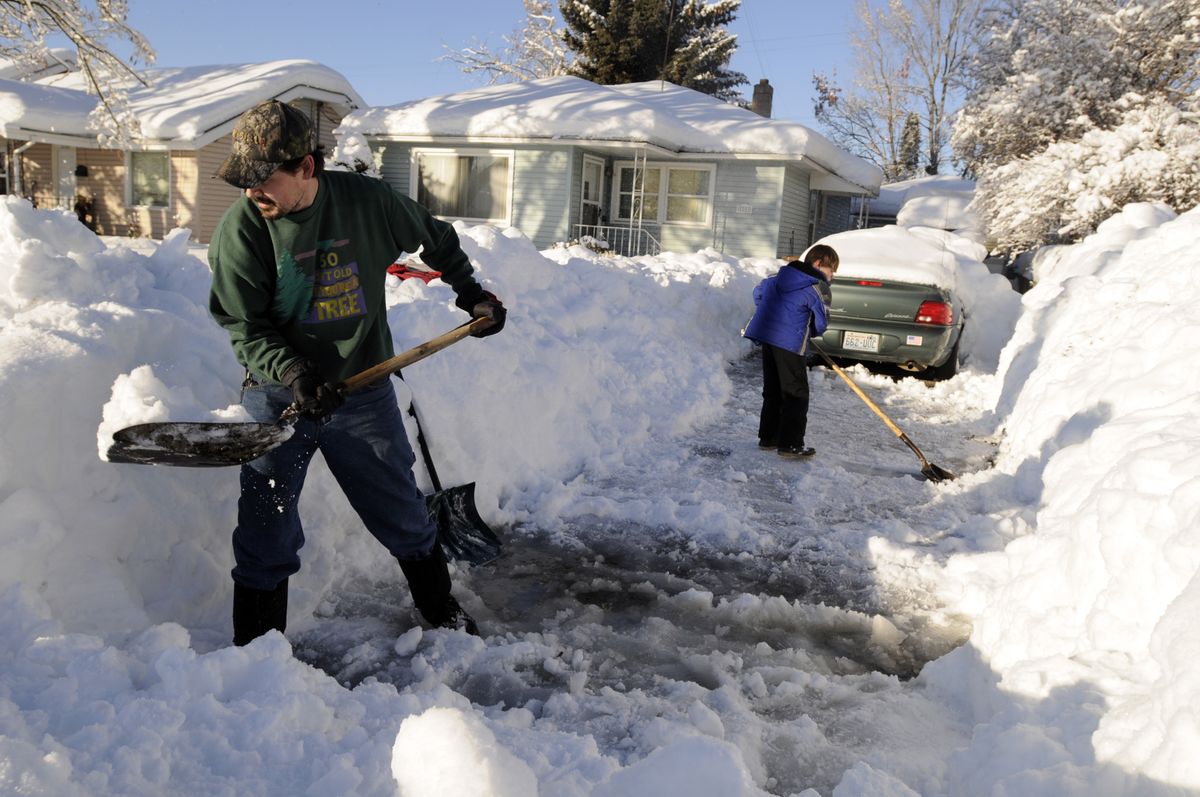Weather getting downright annoying
Many people wrestling with cabin fever

Cabin fever’s most telltale symptom is irritability. As the snowstorms and cold weather continue, experts in human behavior expect a lot more irritability in the Inland Northwest, regardless of whether people are homebound.
Jeff Hastings, a Spokane mental health counselor, explains:
“Usually irritations are spread out over time and we have resilience. We get stress in doses we are able to tolerate. But when you get higher doses of stress, it drains your coping mechanisms. (People) begin to not function as well.
“Maybe they’ve had a car accident. Then their pipes freeze. Then they hear more storms are coming. Then they try to dig out. People aren’t in the shape they think they are, so they are muscle-sore from shoveling. People are wondering how much more they can take.”
Cabin fever, described in psychology texts as “restlessness and irritability caused from being in a confined space,” occurs most often when inclement weather forces people indoors.
But its symptoms – irritability, sadness, anxiety, depression and sleep irregularities – are widespread these days in the Inland Northwest because many people have lost control over some part of their routines.
“You can’t use as much of your life and personality as you are used to,” said Paul Rosenblatt, a University of Minnesota family and social science professor who has studied cabin fever. “People have lower energy. It’s harder to do anything.”
Our mobile society offers many distractions from boredom and anxiety, Rosenblatt said in a recent interview. Crabby with a family member? Jump in the car and head to the mall. Or go in to work early and stay late.
“One of our usual defenses is to get physical separation,” he said. The relentless bad weather, however, has closed off some of these defenses.
Cabin fever can exacerbate stress for those already enduring seasonal affective disorder – a type of depression caused by lack of sunlight in the winter. And the elderly are particularly vulnerable to cabin fever.
Amy Peters is the program coordinator for Greater Columbia 2-1-1, an information and referral service for nonemergencies, sponsored by United Way of America. The 211 call center, located in Yakima, serves 20 Washington counties, but the majority of calls in the past two weeks have come from Eastern Washington.
On Wednesday an older woman called in, weeping. She said she lived alone, and she felt frantic about the snow accumulating on her roof. She worried about suffering a heart attack. The woman said over and over, Peters said, that she was tired and needed help.
“People are more emotional than usual,” Peters said. “They are angry. They are frustrated.”
Other vulnerable populations include men and women with mental illness and those who battle addictions.
Counselor Hastings is on the staff at Colonial Clinic, a drug and alcohol treatment center in Spokane. He said, “When you don’t have alternatives to entertain yourself when bored, the little gremlin in your head starts asking, what would help me relax? Alcohol?”
Animals aren’t immune to cabin fever. Carla Vaughn, owner of Liberty Lake Pet Sitters, says dogs aren’t getting out as easily, because their owners are homebound. Once the dogs make it outside, they face limited romping space.
“Some will bark more,” Vaughn said. “They’ll start licking and chewing on themselves.”
Cabin fever should ease once the weather returns to normal. In the meantime, experts offer the following advice:
Accept as normal your cabin-fever symptoms. “Having a name for it really helps,” Rosenblatt said.
Exercise. Low serotonin levels in the brain are associated with anxiety and depression; exercise increases serotonin.
Tackle an indoor project. Rosenblatt said some people in Minnesota prepare each year for snowbound days.
“They do household repairs. Catch up on correspondence. They set aside things to do during cabin fever time.”
Get creative. The researchers of Biosphere 2 experienced numerous frustrations during their two years together, living in an enclosed ecosystem in Arizona.
Creative acts eased the frustration. They called people from their past and apologized for hurtful actions. They played musical instruments together.
“Our music-making was a way to explore the difficult emotions we were feeling while trapped,” writes Jane Poynter in “The Human Experiment: Two Years and Twenty Minutes Inside Biosphere 2.”
Help someone else. Numerous studies link altruism with increased happiness and well-being. A phone call to a shut-in friend or family member can help both people on the line.
The 211 program’s Peters explained: “So many of our callers just need to hear a human voice.”